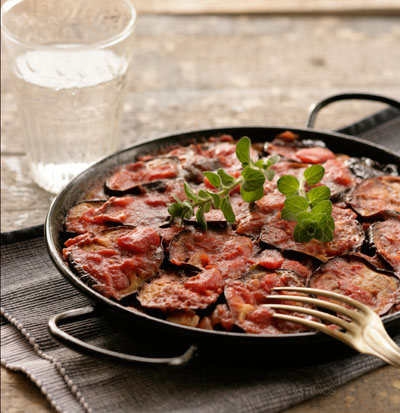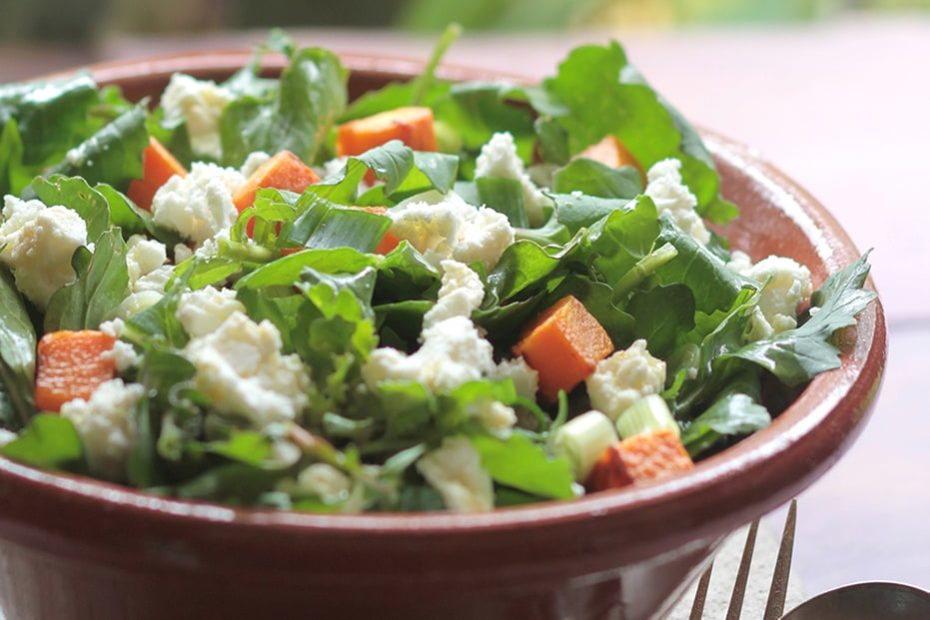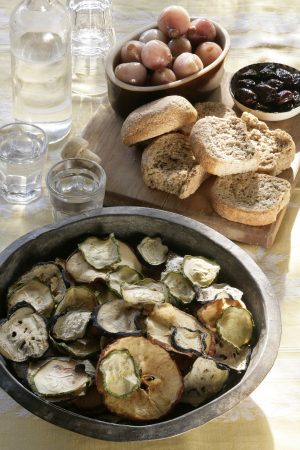
The generous amount of olive oil that this dish requires and the unhurried approach to making soufico results in a dish where the vegetables are all very soft, almost caramelized in the sense that all the sweetness inherent in them has had time to develop. The soft, comforting texture bestowed by the olive oil made the vegetables more palatable. It was our best seller. Then, one night, our chef got sick and the sous chef made the soufico, shrugging off the slow cooking for expedience by cooking everything in a deep fryer. Oddly, it was as though our customers sensed that something was wrong; we didn’t sell a single order that night!
This story always stayed with me because it is a paradigm for the care inherent in cooking even the simplest vegetable dishes. It’s also a paradigm for the feel-good quality these dishes, when made well, inspire.
Vegetable cooking on Ikaria is totally dependent on the seasons. There is, for example, a summer and a winter version of Soufico. Most islanders live by what their garden grows, and by what they can preserve from it, such as the tsifia, or sun-dried fruits and vegetables, which still see them through the long, wet winters.
But Ikaria’s vegetable cookery, aside from a few local brushstrokes–i.e. the use of unusual herbs like pennyroyal here and there, the presence of long-forgotten ingredients like green almonds, the preference for slow stews, and the love of collards–really follows the same tenets as the vegetable cookery throughout Greece. That is, people take for granted the inordinate number of dishes that are main courses, plant-based and sating. These dishes have been Ikarian’s sustenance for hundreds of years.
That said, eating more vegetarian meals can be a challenge when it comes to getting complete proteins, proteins that include essential and nonessential amino acids, which our bodies need for complete nutrition. It is no accident then, that so many of Ikaria’s, and, indeed, Greece’s plant-based dishes, include the kinds of combinations that make for nutritionally complete meals. It’s not by chance, for example, that so many of the greens and vegetable stews also include potatoes, which round out the nutritional profile; or that there are so many vegetable or legume and rice dishes.
With a piece of good whole grain bread and perhaps some cheese or preserved meat or fish, most of the island’s main course vegetable dishes provide us with our daily nutritional requirements in one plate.
The best part is that they taste great!







